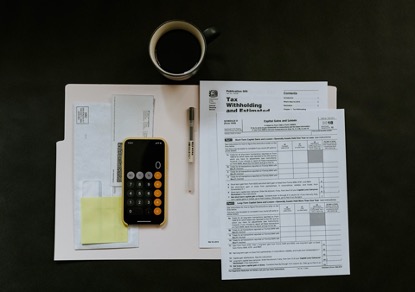What To Know About Becoming a CPA
When considering a new career path, a lot of factors come into play. One option that is not classically popular despite its excellent prospects is becoming a certified public accountant (CPA). Similar to most occupations, there are many factors you need to consider before jumping headfirst into the profession to make sure it suits you.
How to Become a CPA
To become a CPA who can claim expertise and work with various clients, you need proof of at least bachelor’s level qualification. Additionally, you need to pass the Uniform CPA Exam and the Professional Ethics Exam for CPAs, all of which require considerable dedication of time and effort to pass with flying colors. However, passing the test still doesn’t mean you have a license to practice. After passing your exams and getting your bachelor’s degree, you need at least one year of general accounting experience entirely supervised by another CPA with an active practicing license.
The amount of college credit and classes required relies primarily on the state you reside in and wish to practice as a CPA. While receiving a graduate degree in your field is not necessary to become a licensed CPA, it can open more doors and make you more trustworthy and better at your job.
Types of Jobs for a CPA
Thanks to the evolving nature of money and finances for companies and individuals, becoming a CPA opens many doors to earning in various fields and serving a diverse variety of clients. Some career paths include:
- Financial Advisor– As a financial advisor, you’re responsible for consulting companies and individuals based on their current financial situation and helping them reach their financial goals. This role requires a lot of common sense, versatility, and staying on top of the latest trends in the fiscal world and economy. The median annual salary for a financial advisor in the United States is around $87,000 and could climb up to $154,000.
- Forensic Accountant– As the name suggests, a forensic accountant is responsible for investigating whether companies are using misleading data in their annual or semi-annual financial reports. You should expect to earn around $70,000 per year as a forensic accountant with the high possibility for an increase as your experience in the field increases.
- Public Accountant– In the US, being a public accountant means providing a full range of accounting and financial services ranging from auditing and taxes to consulting to clients of all sizes and industries. A public accountant in the United States makes approximately $119,000 a year, which can climb up to $152,000 with two decades of practicing experience and a good reputation.
Costs of Being a CPA
Becoming a highly skilled CPA isn’t all about earning money. To make it in the field, you need to be prepared to set aside some necessary expenses that’ll pay back for themselves in the long run.
In addition to your bachelor’s degree tuition, you still have considerable expenses you need to pay, starting with a preparation course for your CPA exam. Classes can be anywhere from $1300 to $3000, depending on the course and whether an instructor teaches it or it’s self-study. The CPA exam fee averages at around $1,000 and varies per state. As for the CPA Ethics Exam, self-study courses average at around $170, and the exam itself costs $150.
Unless you fail one of your exams, those expenses are all a one-time payment. A recurring payment you need you to prepare for is getting professional liability insurance for accountants, which averages around $350 a year. The insurance policy is an essential expense as it can cover you financially from accidents or accusations of negligence in the court of law.
High Demand
Money is at the center of the world, whether you’re an individual or a business owner. Unless society stops using money altogether, being a CPA will always be in high demand both globally and in the growing economy of the US. It’s true that becoming a CPA and funding your journey into a respectable income requires a lot of work and self-investment. However, it is a high-paying and highly secure job to be in in the long run.
Playing The Long Game
You don’t become a high-earning CPA overnight. You’d have to spend years working towards your goal and investing time, effort, and money to achieve it. Even when you get your first job, it still takes time to learn the ins and outs of the industry and become an actual professional CPA.

